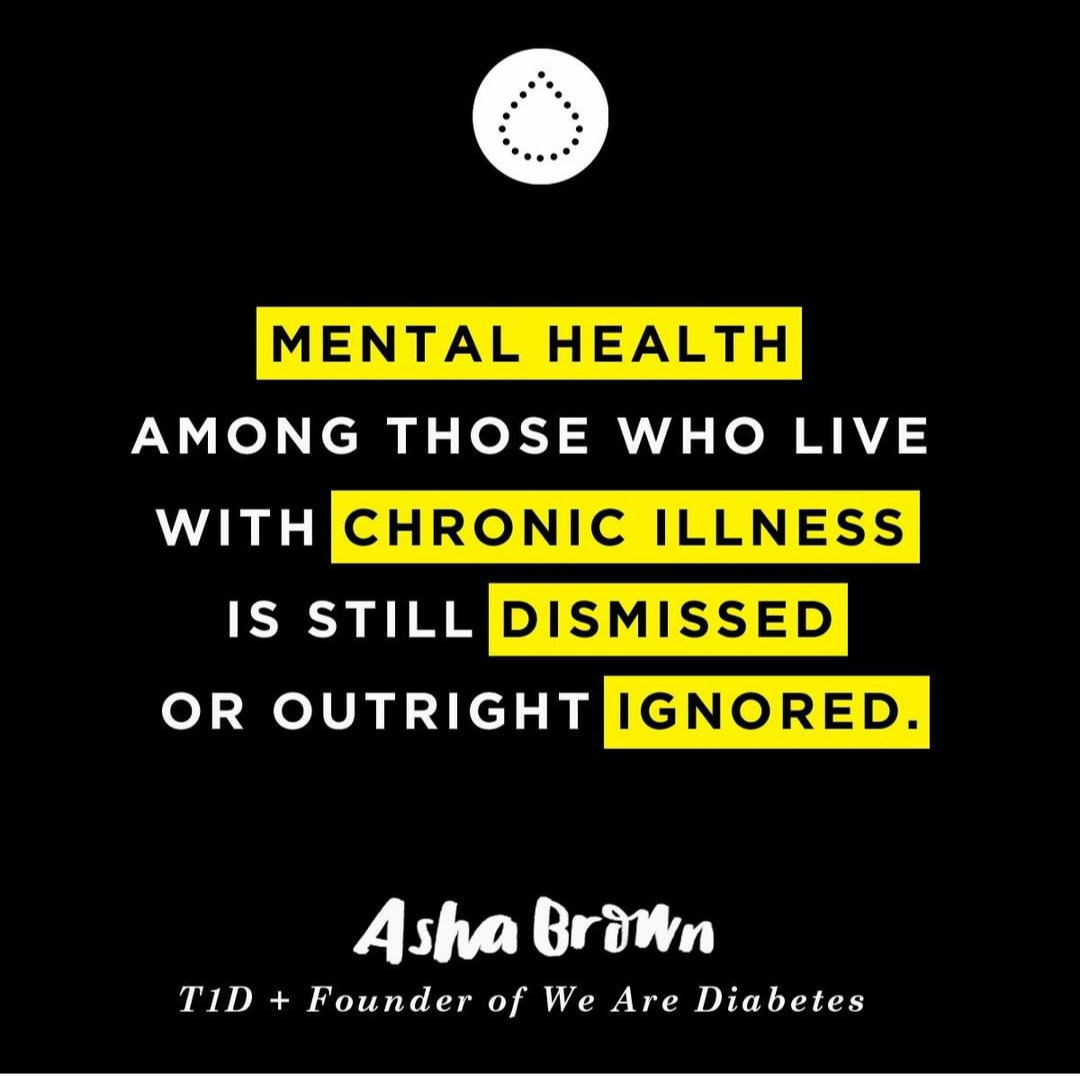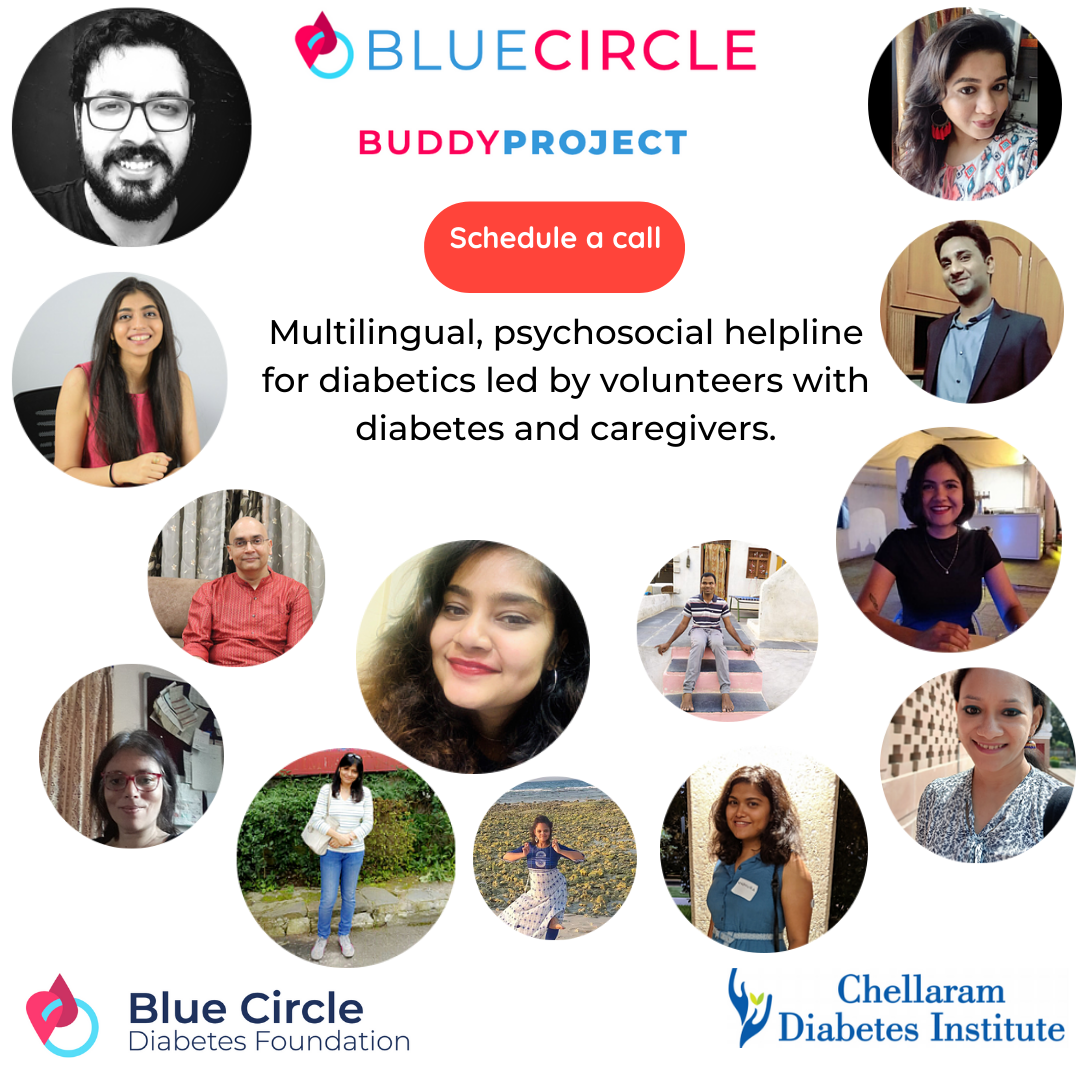Mental Health and Type 1 Diabetes
If asked to list the top things that entail diabetes management, common responses are eating right, exercising correct, checking BG levels at regular intervals (whether you are or not on a CGM or FGM) and couple of other tasks. While each of these tasks are physical, the mental inputs aren’t apparent upfront. As we go about doing these tasks every day, our friends and family see us doing these tasks but not the thoughts that go into managing diabetes successfully.
The thing about living with a chronic illness, particularly type 1 diabetes is it’s a LOT of self-work, rather than your doctor doing it for you. They can guide you only so much. Also, there is no ONE CORRECT way of diabetes management. The only correct way is the one you figure out by trial and error. Every new day comes with a new learning. Just like you, your diabetes management evolves as you grow.
You see. You learn. You adapt.
As we go about our lives by keeping a close tab on our BGs, carb counting, eating right, making exercise regimes that are consistent while studying/working just like others, there is bound to be enough mental work that goes on to effectively pull ALL of this effectively. This takes a toll on mental health.

Why is mental health important with T1D?
Being motivated at all times to do a good job at diabetes management becomes difficult because there is no break from it. You fall off the wagon and then feel guilty about it later. It’s basically a vicious cycle that just goes on because there will be no break from this unlike every other job that you do.
Types of issues and impact on T1 :
While the list of mental health issues that can affect a T1 is not exhaustive, these are the most common ones :
1. Stress
Stress is defined as, 'a state of mental or emotional strain or tension resulting from adverse or demanding circumstances.' These circumstances need not be sad or negative ones, a happy circumstance also sometimes leads to stress.
The common symptoms for stress are:
- Headaches
- Extreme fatigue
- Upset stomach
In any stressful situation our body releases two hormones, epinephrine and cortisol. This leads to extra glucose being released in our body by the liver.
In a non-diabetic this helps to reduce the stress but for a T1D this means a lot more than is apparent. With no extra insulin present in our body to absorb the extra glucose, it leads to raised BG levels, thus leading to hyperglycemia. When you are stressed keep an eye on your BG and correct if out of range.
For me, high BG almost always leads to increased appetite, severe headache and the inability to perform everyday tasks. (Relatable enough for anyone?) While I tackle all these physical issues, what goes on inside my head is equally important. At times, I am unable to prioritize my diabetes management and that definitely doesn’t help the cause.
Managing stress should be a priority for people living with type 1 diabetes.
2. Depression
Enough published material has established that living with type 1 diabetes puts you at a greater risk of depression.
The emotional labour of hows and whats of diabetes management affect your mental health in the worst possible manner, especially if somebody is newly diagnosed. Incase a person has been living with diabetes for long, they are bound to experience a burnout which takes a toll on their mental health.
Living with type 1 diabetes is a job we did not sign up for and from which there is NO break.
There are reports that state that about 86% of T1Ds suffer from depression at some point in their lives. There is a very thin line between depression and a bad mood. If you are depressed, you will constantly have a low feeling irrespective of what task you are currently doing. However when you are in a bad mood, you feel low at that point but you feel euphoric when good things happen (for instance a stable and in range BG graph for a day makes me happy!)
The following are the common symptoms of depression:
- Changed sleeping patterns
- Difficulty in concentrating
- Changes in eating pattern
- Experiencing self-worthlessness
- Feeling lethargic
While this is not an exhaustive list, in case you feel you relate to any points, it is best to seek professional help.

3. Anxiety
Let’s face it. We tend to be anxious about something or the other in our lives, whether personally or professionally. Severe anxiety could later develop in to an anxiety disorder. And how does that play out if you are a T1D? Being a T1D, besides being anxious about all other normal things, you could be anxious about your diabetes management. For instance, if your BG is not in range the entire day, you may tend to overthink it and question your every action.
Common symptoms of anxiety include:
- Insomnia
- Weakness and lethargy
- OCD
- Nervousness
- Increased heart rate
In fact the symptoms of anxiety overlap with those of hypoglycemia. It is important to not get confused between the two by simply testing BG.But like all other mental health issues anxiety is also a manageable one. It’s best to seek help before it’s too late.
To sum up, any mental health condition is just as difficult to deal with as a physical illness and for a T1, it becomes harder. So anytime you feel the pressure, take corrective steps immediately.
What can be done to get better?
It cannot be emphasized enough how seeking professional help is imperative, but here are few things you can start doing on your own besides going in for professional treatment, if you are a T1 :
1. Deep breathing: While I am not somebody who actively meditates, I can assure you this is an extremely effective way to calm your racing mind. Deep meditation works wonders since it helps you put your mind at rest.
2. Art it out: Art therapy is fast becoming a way of dealing with mental health issues. Pick something creative that interests you, whether it is drawing, painting, writing or just about anything that makes you feel happy and productive.
3. Journal it: Writing down feelings; good, bad, ugly and pretty works for me. It feels like you have spoken out everything that’s clogging your mind.
4. Exercise: Regular exercise helps the body and also reduces stress, anxiety and improves mood.
5. Reach out to the T1D community: The power of community can only be emphasized in so many words. Knowing that you are not alone makes the healing and recovering process easier.
Schedule a call on our helpline run by multilingual trained volunteers living with diabetes and caregivers.

My mantras:
1. One day at a time: For every bad day that you have, remember the cliched line, 'its just a bad day not a bad life.'
2. Cut yourself some slack: Make genuine efforts to get better but cut yourself enough slack on days you don’t do a good job too
3. Don’t become complacent: with your diabetes management to a point that if you become indifferent, it’s the start of a downward spiral.

Have a happy day!
SUPPORT BLUE CIRCLE DIABETES FOUNDATION
We need your help and support to continue to grow, expand and touch the lives of countless people in the diabetic community. Every little bit helps us in sustaining this endeavour.
Click here to donate

